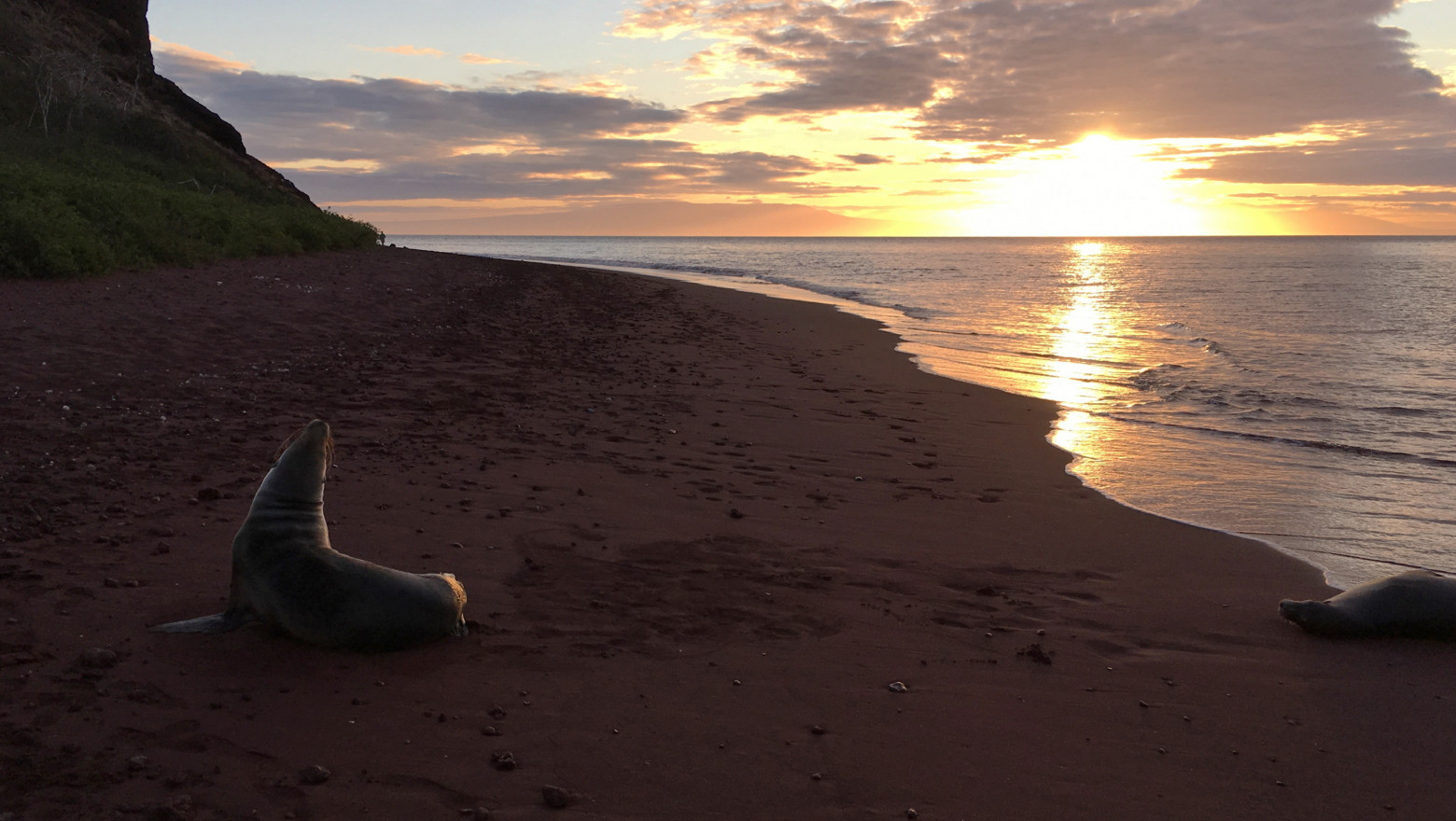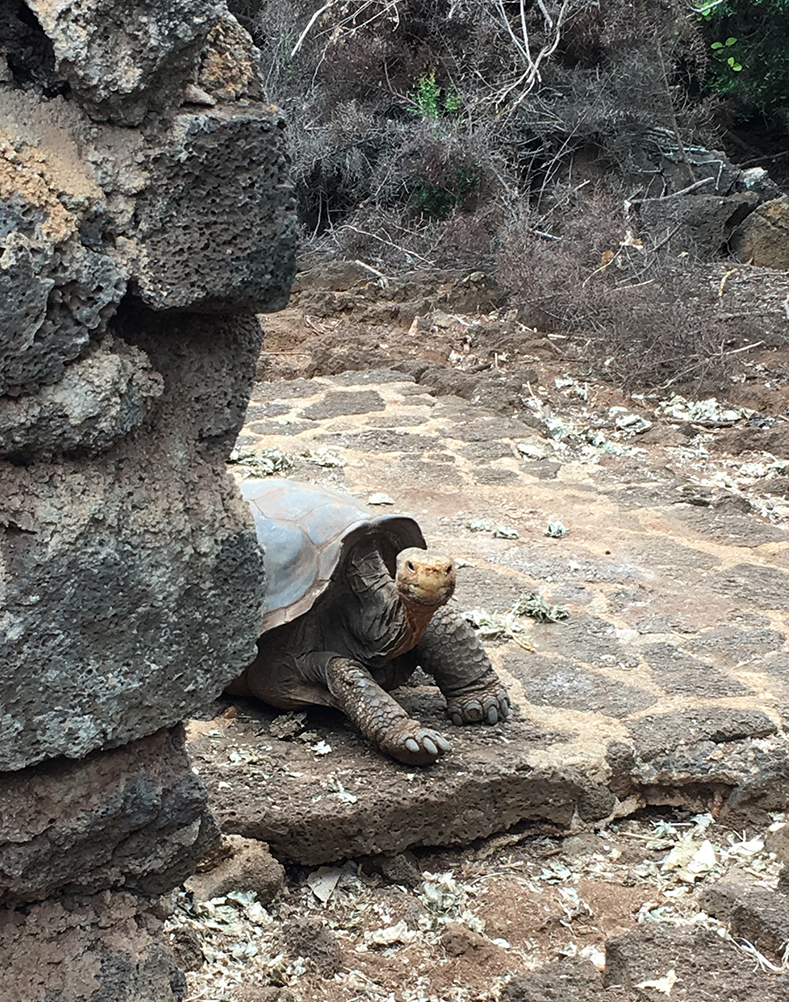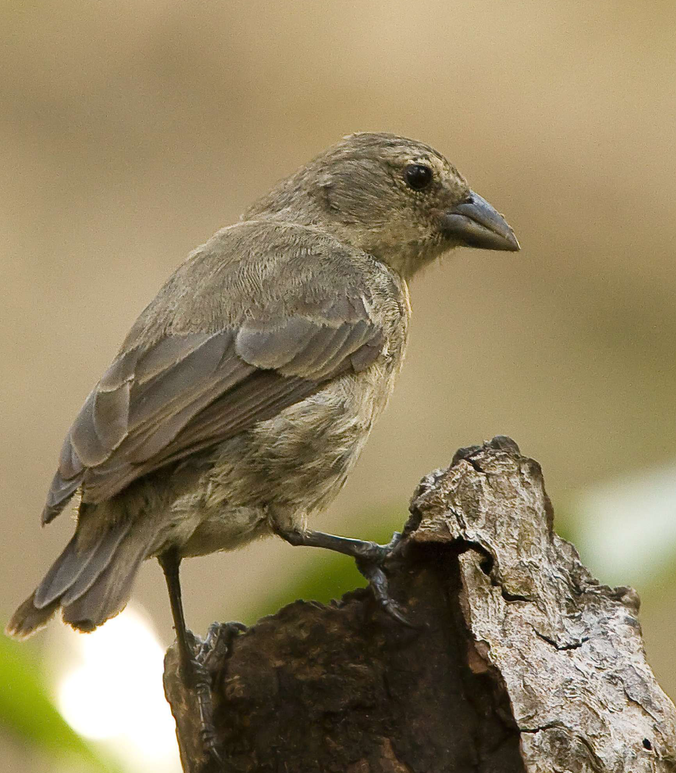
The Galapagos islands are home to many plants and animals, both terrestrial and aquatic, that are found nowhere else in the world. (Henry Becker/George Washington University)

The Galapagos islands are home to many plants and animals, both terrestrial and aquatic, that are found nowhere else in the world. (Henry Becker/George Washington University)
According to the Galápagos Conservation Trust, controlling invasive species is one of the biggest problems facing the Galápagos Islands.
Galápagos park guides say that goats were first brought to the Islands by fishermen as food reserves in the early 20th century. Unexpectedly, goats survived quite well on the islands where they were released. But predators like coyotes and wolves that normally keep goats in check are not found in the Galápagos, so the population exploded.
Goats became so numerous on Isabela and Santiago islands that native species like the giant tortoise began to decline because they were outcompeted by goats for food. In 1997, when the goat population on Isabela Island had reached 100,000, action was finally taken.
We all share a soft spot for chèvre and goat yoga. So why did these passive plant-eaters need to be stopped?

The Galápagos Islands is not only important for its consistent rank among “must see places before you die” lists, the flora and fauna of the islands is biologically unique. In other words, most of the native species on the islands do not exist anywhere else in the world. In biology, uniqueness is valuable. These islands are as unique as it gets. And once the giant tortoises are wiped out, we cannot bring them back. Protection of Galápagos giant tortoises and all other unique species on the islands is therefore critical.
To eradicate the goats, park rangers were trained in marksmanship and flown in helicopters low over the islands. Goats were shot one by one. Eventually, so few goats remained that they became difficult to find in the underbrush. Scientists developed a brutally clever strategy to remove those that remained: “Judas goats.”
Because goats like to congregate in herds, several females were captured, marked, and sent back into the wild with GPS trackers. These marked goats were the Judas goats. Naturally, these females eventually found and joined existing herds and by doing so, exposed the locations of the remaining goats.
The ingenious solution of Judas goats led to one of the most successful invasive species eradications on the islands to date. What makes invasive species control so fascinating is the fact that with each new invasive species, a completely new management plan is needed.
The same level of ingenuity in the goat solution is needed to overcome the intricacies of each new invasive situation. It is impossible to predict the downstream result of every action, so creative problem-solving along the way is essential.
As with goats, black rats were introduced by mariners long ago. Black rats prey on the eggs of native birds and reptiles. As explained by park guide Anahí Concari, “Project Pinzón” was the park’s response to native species population declines from black rat predation on Pinzón Island.
In 2012, helicopters were used to drop rodenticide in a grid pattern across the island. It was quickly discovered that lava lizards, which are native to the Galápagos, also were eating the rodenticide. Though the lava lizards were unaffected by the poison, they stored it in their livers.
Which only moved the problem up the food chain. The Galápagos hawks that ate these lava lizards were affected by the rodenticide and the hawk population declined. The quick thinking solution was to capture as many remaining hawks as possible and hold them in captivity until the rodenticide concentration in lava lizards dropped to safe levels — which took about two years.
Project Pinzón ultimately was successful on Pinzón Island, but the increased mortality of Galápagos hawks was an unexpected and unfortunate price to pay.
The loss of the hawks demonstrates the risks associated with invasive species control in such delicate, interconnected ecosystems. Each situation is unique and the stakes are always incredibly high as there’s always the possibility that a seemingly sound idea will unexpectedly do more harm than good.
When a parasitic fly is destroying the populations of 20 species of birds, Judas goats and rodenticide will be of no help. Unfortunately one such fly is currently terrorizing the Galápagos. These flies lay eggs in the nests of birds and their larvae suck the blood from baby birds as soon as they hatch. This gruesome invasive fly has pushed several Galápagos finches to the brink of extinction.
According to the Charles Darwin Research Station, 20 Galápagos bird species are at risk from the fly. Because the birds are only preyed on as hatchlings, raising birds in captivity until they are no longer hatchlings protects them from the fly.

The mangroves that these birds nest in are sometimes as tall as 20 meters (a little over 65 feet), so professional tree climbers were hired to remove eggs from nests before they hatch. The birds are reintroduced when they are too big to be preyed on by flies.
This strategy has helped, but it is not scalable. There is not enough space or resources to raise enough of each bird species in captivity. Other stop-gap methods involving insecticide have been tested but no one strategy has been effective enough.
Park guide Concari mentioned a controversial management strategy called biological control that has recently been circulating in the conversation about this parasitic fly.
Invasive species like these goats, rats, and flies, are able to take over in the Galápagos because their normal predators did not travel with them, and none of the predators that keep these animals in check in their native habitats exist in the Galápagos.
Biological control involves locating a predator or pathogen that checks an invasive in its native habitat and introducing it into the non-native habitat in which it currently lives. In other words, scientists want to introduce another introduced species to deal with a previously introduced species. (Got that?) According to information provided by Galápagos National Park Guides, there are already more introduced species on the islands than there are native species. Could purposefully introducing more really be worth it?
The strategy of biological control is incredibly risky and still controversial. When the conversation shifts to invasive plants however, biological control does not seem as far fetched. Though goats, rats, and flies may seem challenging to eradicate, invasive plants are in fact much more difficult.
Heinke Jäger, a senior scientist at the Charles Darwin Research Center on Santa Cruz Island with a Ph.D. in ecology, explains that eradication of an invasive species is always the ultimate goal, but sometimes complete eradication is unrealistic.
When the last female goat was removed from the islands, the population could not recover.
However, plants are much more difficult to eradicate because once a plant is established, its seeds become distributed throughout the soil. Jäger says the seeds of the invasive blackberry bush, Rubus niveus, can remain dormant in Galápagos soil for 10 years, possibly even longer.
Authorities have tried injecting herbicides into their trunks or even just ripping the plants out, yet the blackberry continues to spread.
Just as animals have predators, plants do too. There is a certain fungus called a rust fungus that preys on these blackberry bushes in their native habitat in China. Jäger believes releasing this blackberry fungus could finally check the blackberry invasion.
She noted that although many people often think of the times when biological control has failed, there have been many successful implementations worldwide and even a previous success in the Galápagos.
In 2002, a species of ladybug was introduced in the Galápagos to control the exploding population of a sucking insect that was destroying the mangrove forests. Biological control could be the key to protecting Galápagos from the continuous onslaught of invasives.
Jäger is optimistic.
“I really, really hope we can get the funding to continue the work on the rust fungus for blackberry, there are examples in the world where this has worked on blackberry,” she said.
Among park guides like Concari, and scientists like Jäger, there seems to be an air of excited anticipation as biological control agents are researched for both the invasive blackberry and parasitic fly. Introducing a new species to deal with a previously introduced one is certainly the most innovative solution around.